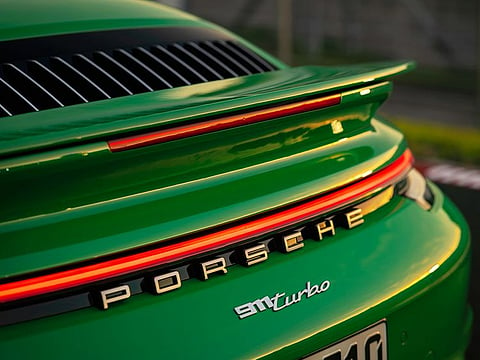Can Porsche’s carbon-neutral 'e-gas' save the planet?
Carmaker launches effort to make "synthetic" fuel that could fuel any car's petrol engine

Porsche has no plan to make an electric version of its iconic 911 sports cars. So, how to ensure continued sale of its flagship model far into the future, when governments around the world, including California's, are planning to eventually ban sales of new internal combustion cars?
Porsche's answer: carbon-neutral "synthetic" gasoline that could fuel any car's gas engine, not just Porsches.
Through a new pilot project the German maker of high performance automobiles announced on Wednesday, windmills in Chile would provide electricity to turn water into hydrogen fuel and oxygen. As part of the same process, carbon dioxide would be filtered from the air. The hydrogen and carbon dioxide would be combined to form methane, to be reformulated as a gasoline substitute. Because the carbon dioxide was already in the air, the resulting tailpipe emissions would add no greenhouse houses to the atmosphere.
The aim is to "show what's technically possible," said Michael Steiner, head of Porsche research and development, so that so-called e-gas can be sampled by drivers and evaluated by regulators as governments crack down on greenhouse gases to address climate change.
The technologies that underlie the Porsche project are already proven and well understood. Water has been turned into hydrogen and oxygen for decades, through the process of electrolysis. Engineers have decades of experience turning methane into gasoline-like fuel as well. The increasing capacity of solar and wind energy makes a carbon-neutral process possible.
The potential barriers: cost, distribution and acceptance by customers and regulators.
Once the plant is up and running, the company said, the e-gas will be used first in Porsche racing cars and cars at Porsche Experience Centers, including the one located in Carson, where potential customers, for a fee, can drive Porsches at high speeds on a racetrack.
Porsche's partners in the venture include Siemens Energy and Exxon Mobil. Once the fuel goes to market, it would use the same gas station pumps as regular gasoline. It would be more expensive, though Stein said the price would be competitive with regular gasoline if it were untaxed. However, he said, if it catches on, expanded production could lower the cost and price significantly.
That governments would give the fuel a tax break is by no means assured. It's also unclear whether the availability of a zero-emissions fuel compatible with internal combustion engines would cause governments to reconsider their plans to ban sales of new gasoline cars. (California's ban is set to take effect in 2035.) "We don't know" whether regulators will accommodate e-gas, Steiner said.
Porsche said its commitment to electric vehicles remains firm. "By 2025 at least 50% of cars we sell will be fully electric or plug-in hybrid," Steiner said. Earlier this year, Porsche began selling its Taycan all-electric sports car. Next up, the company plans to soon introduce an all-electric version of the Macan compact sport utility vehicle. The company sells a hybrid version of its bestselling car, the Cayenne SUV.



